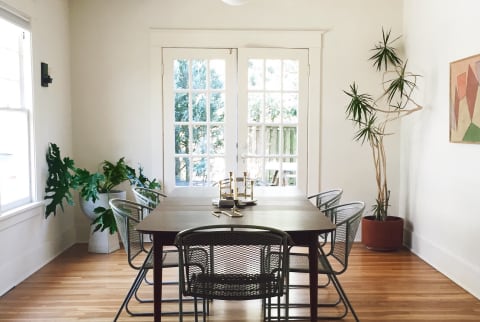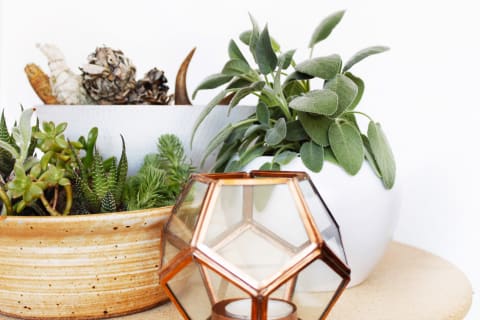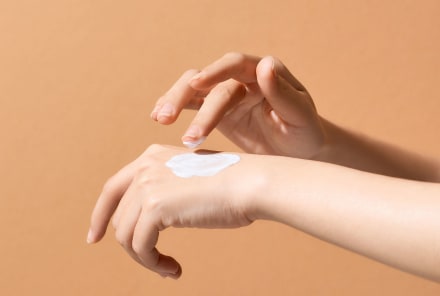Advertisement
4 Things In Your Home That Could Be Triggering Your Anxiety


Anxiety is an all-too-common condition these days—known to cause symptoms such as increased heart rate, chronic worrying, and fear of the future. While a certain amount of stress is totally normal (and some doctors even encourage it), anxiety is different in the sense that it can be debilitating and is ever-present—even when things may seem calm on the surface. While some people find that habits such as meditation, journaling, and regular exercise help reduce symptoms, others struggle to pinpoint the triggers of their anxiety and therefore have a harder time dealing with it.
As someone who is fascinated by how our surroundings influence our psychology, I wanted to share a few additional contributors to anxiety that could be sitting right under your nose at home:
1. Your light bulbs
People with anxiety, particularly those who feel a sense of panic or overwhelm easily, might be more sensitive to sources of intense light. Some of these sources include LED bulbs, fluorescent lights, and blue light from phones and computers. Consider replacing some of these light bulbs with a softer, lower light source. Limit the amount of time you spend on your phone or computer, particularly at night. (If you are having trouble sleeping, consider retiring technology one to two hours before you get in bed.)
Psst...here's one swap that will make it easier to go phone-free in the bedroom.
2. Your noisy neighbor
If you live in an area such as in a city, close to an airport, or right by a neighbor with a loud dog, you should know that incessant noise has been shown to increase anxiety levels1. A little white noise, like from a sound machine or gentle water feature, may do the trick. You may also buffer the noise by placing some kind of tapestry on the wall.
This one noise frequency might be the key to better sleep.

3. Your air quality
Areas of higher altitude can increase symptoms of anxiety, according to some studies. Other traits of poor air quality (think: high or low humidity, stale air, or persistent smells) have also been shown to have negative effects on our mental and physical health. You can take small steps to improve the quality of your home's air by purchasing more plants, removing stinky trash immediately, and opening your windows every so often and lifting the shades to allow the sunlight to come in.
This toxicologist has some more tips for making sure your home's air is the cleanest it can be.
4. The chemicals in your cleaning products
These days, chemicals can unfortunately be found everywhere—including our cleaning supplies. If you have anxiety, you should take precautions by avoiding harsh chemicals. Start by educating yourself on what toxins you should be avoiding, looking into products that are made using natural and naturally derived ingredients (here's a great list of ones that you can probably find in your grocery store), or making your own cleaners out of things you already have on hand.
This homemade natural cleaner works on pretty much ever surface.











